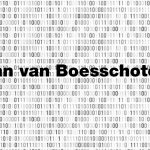The Hippocratic Oath requires a new physician to swear upon a number of healing gods that he or she will uphold professional ethical standards. It also strongly binds the student to the teacher and the greater community of physicians.
Over the centuries, this oath has been rewritten, often to suit the values of different cultures influenced by Greek medicine, but as a principle, it remains as relevant and valid as it did in those ancient times. And with good reason, given the power that doctors have over our lives.
Skip a few thousand years, and social media, algorithms, artificial intelligence (AI) and machine learning have made the world into a place that Hippocrates would barely recognise. It would have been all Greek to him, but for the rest of us, not a facet of life has been left unchanged by a technology-driven world in which data is the most valuable commodity.
Yes, the world’s most valuable resource is no longer oil. In today’s digitally transformed and connected world, data is produced in vast amounts daily, at a mind-boggling volume and pace. In fact, 90% of the world’s data has been created in the last two years alone, as one datacentre CIO recently told BBC TV programme Panorama.
It also revealed that just one normal hospital can generate more data in a day than it did in the whole of 1997. From fighting diseases like Covid-19, protecting endangered species to rebuilding after natural disasters, businesses and organisations across the globe are effectively harnessing these huge volumes of data to improve humanity and make a difference.
Data science is one of the fastest-growing industries in the world. It has the power to transform the decision-making of everyone from the presidents of the planet’s biggest economies to the academics at the world’s most prestigious institutions. This, in turn, impacts all of our health and wellbeing. It’s fair to say that with this power comes great responsibility.
It is the data scientists like me who sit at the heart of this technological revolution. Our work involves collecting, organising and analysing massive amounts of data. And its use is everywhere.
Data is extensively used by law enforcement, intelligence services and the military, which have access to vast amounts of data and techniques such as face recognition to help identify criminals, foil terrorist plots and make the country safer.
I have observed that, in the healthcare sector, data analytics is accelerating the speed at which DNA strings can be decoded, leading to the faster creation of cures and the ability to predict disease patterns. It is also being used to monitor premature babies, allowing doctors to analyse heartbeats and breathing patterns.
Data analytics has even made scientific research such as CERN possible, with the Large Hadron Collider producing astronomical amounts of data designed to unlock the very secrets of the universe.
Without seeking to self-aggrandise, I think it is fair to say that, like doctors, data scientists are also sometimes behind life-and-death decisions. Data science-based decisions are used extensively in the medical profession, and decisions based on risk can have huge repercussions related to financial mobility.
What we, as data scientists, do, and how we do it, has enormous consequences for how we live our lives: how we interact with each other; how we go shopping; how we go on dates; how we are treated in hospital; how we find jobs; how we travel; and yes, even how we vote in elections.
It is an industry that is not without its critics. The same AI-based facial recognition systems that are used to make travel easier or identify criminals have reportedly been used for the ethnic profiling of Uyghur people in China, according to Panorama. Similarly, the programme highlighted that advancements in intelligent weapons able to crunch thousands of data points in seconds are creating an arms race that both protects and threatens billions of citizens.
Meanwhile, these citizens are left to navigate the mire of data-driven online content every day, as Twitter bots spread disinformation and discord on everything from political issues to Covid-19. Such is the level of mistrust for what we see and what we hear that “fake news” was 2017’s word of the year.
I believe that the data economy demands a new approach – and a new standard. And it all starts with the data scientist.
Just as Hippocrates had the foresight and vision to help humanise the function of the doctor and instil ethics into the role, is it time data scientists also declared they should “do no harm”? This data scientist here certainly thinks so.
Iain Brown is head of data science at SAS UK&I and adjunct professor of marketing analytics at the University of Southampton














